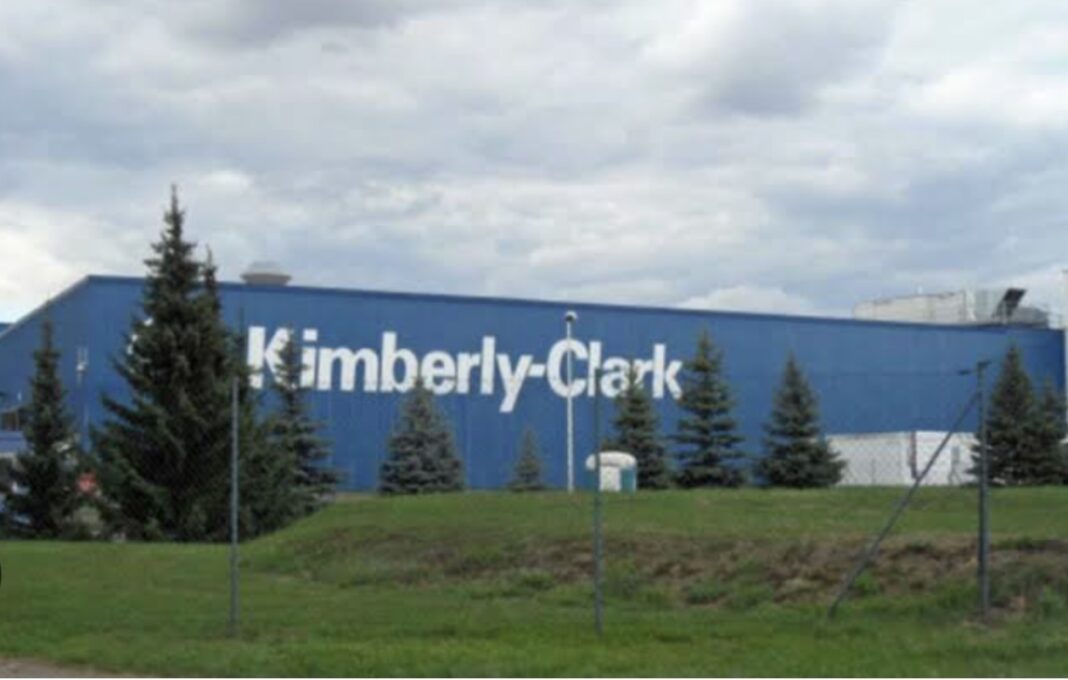Diaper and sanitary pad manufacturer, Kimberley Clark will soon announce an imminent shutdown of its Ikorodu production facility two years after investing $100 million in Nigeria.
A credible source within the company revealed that the plant has been producing below capacity from late 2023 into 2024 due to the harsh economic environment within the country.
In 2022, the company inaugurated a $100 million production facility in Ikorodu, Lagos state to restart operations after a similar closure of operations in 2019 following a strategic review of its business.
Kimberly-Clark began operations in Nigeria in 2012 but stopped due to unfavourable economic conditions after five years in 2019 to later restart in 2021.
The company produces Huggies diapers, sanitary pads, Kotex and other hygiene and personal care products. KC is a listed multinational on the New York Stock Exchange with the majority of its shares held by institutional investors like Blackrock Inc., Vanguard Group, Morgan Stanley etc.
According to the source who claimed anonymity, the company since late 2022 have battled with high energy costs, raw materials and reduced demand from customers due to the prevailing economic situation.
This has resulted in downsizing and reduced production time from every day of the week to just Mondays to Thursdays.
The company currently spends around N100 million on power generation monthly aside from maintenance costs and its monthly fixed spend on operations has risen over N500 million.
He said, “Our first two years were fantastic in terms of sales growth and market shares within the diaper industry. Fast forward into late 2022 and 2023 was really bad years for the company due to economic situation.”
“Running cost is extremely on the high side. Our fixed spent on a monthly basis is above N500 million and we spent about N100 million on just gas consumption for powering the gas engine aside maintenance. The company has two assets and for last year, these assets didn’t run for like 90 days in 365 days.”
“Earlier this year, the company had to downsize to 2 shifts from 4 shifts. We run 24hrs and 7days and 365 days before but currently we don’t run on Friday, Saturday and Sunday anymore because of the economic situation. There is already an embargo on external recruitment. The company is looking for ways to reduce cost since it is not making a profit.”
Furthermore, the source noted that the high production cost stems from the increased raw material cost since it is import-based.
At the initiation of operations about three years ago, the company set aside some money for operations which it estimated would last five years after which revenue from Nigeria could sustain the operations.
The source also confirmed that the company is unlikely to turn to import, like its rival Procter and Gamble, suggesting it will not be officially transacting in the country.
The planned closure of operations of Kimberly-Clark from Nigeria and the reasons provided are similar to those of other manufacturers who have exited the country in the past few years.
High production cost, currency depreciation affecting the import of raw materials, and weak purchasing power of the populace.
Last year, another U.S based company in the personal care business Procter and Gamble (P&G) closed production in Nigeria in a similar fashion having invested about $300 million (the single largest non-oil investment by a U.S company in Nigeria) in a production facility in Ibadan.
Similarly, PZ Cussons stated last month that it is evaluating strategic options for its Africa business for which Nigeria is the biggest and thinking of ways to maximise shareholder value. The company has also restarted asset disposal in Nigeria after a halt due to forex liquidity issues.
The baby diaper industry in Nigeria is estimated at $920 million with a CAGR of about 11% between 2024 and 2028 according to Statista. Leaders in the industry include; Pampers produced by P&G, Molfix, and Kimberly-Clark’s Huggies. However, it is a hugely competitive industry with about 15 brands competing for market share.




